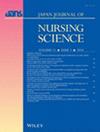Correlation of internalized stigma with self-esteem, social support and coping styles in patients with rheumatoid arthritis: A cross-sectional study
Abstract
Aim
To understand the status of internalized stigma in patients with rheumatoid arthritis (RA) and explore its relationship with self-esteem, social support, and coping style.
Methods
This cross-sectional study selected patients with RA who visited the Rheumatology and Immunology Department of a tertiary hospital from May 2022 to May 2023. The Chinese versions of the Internalized Stigma of Mental Illness Scale-Rheumatoid Arthritis (ISMI-RA), Social Support Rating Scale, Rosenberg Self-Esteem Scale, and Medical Coping Style Questionnaire were administered to assess the internalized stigma, social support, self-esteem, and coping styles, respectively. The Pearson correlation test or Spearman rank correlation was then used to analyze the correlation between these measures.
Results
Overall, 69.5% participants reported high level of internalized stigma. The average age of the 174 participants was 52.67 ± 12.24 years, with 87.36 per cent female patients. The mean ISMI-RA score was 54.49 ± 9.62, and the ISMI-RA subscale with the highest average score was alienation. The Pearson's correlations show that internalized stigma was positively associated with the coping styles of avoidance (r = .212, p < .01) and acceptance (r = .560, p < .01), and that internalized stigma was negatively associated with the coping styles of confrontation (r = −.479, p < .01), social support (r = −.570, p < .01), and self-esteem(r = −.512, p < .05).
Conclusion
The high level of internalized stigma in RA patients suggests that we should develop interventions to improve patients' self-esteem, encourage them to adopt positive coping styles, and gain more social support for them, so as to alleviate their internalized stigma.

 求助内容:
求助内容: 应助结果提醒方式:
应助结果提醒方式:


